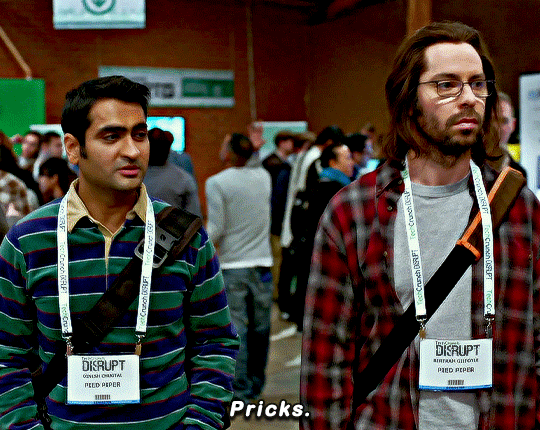#SILICON VALLEY
Explore tagged Tumblr posts
Text


50K notes
·
View notes
Text
Broligarchs are only interested in lengthening their own lifespans or fleeing to Mars after they have made human life on Earth impossible.
As for Mars, let them go there ASAP. Mars is not the almost livable planet depicted in science fiction. This is from the latest book by astrophysicist Adam Becker called More Everything Forever: AI Overlords, Space Empires, and Silicon Valley's Crusade to Control the Fate of Humanity.

We haven't yet been able to fix Earth to keep its climate from spiraling out of control. And taking care of Earth is millions of times easier than making Mars fit for Elon Musk, other billionaires, and DOGE retainers like Big Balls.

Latest comic: What lives matter?
To support this work and receive my weekly newsletter with background on each cartoon, please consider joining the Sorensen Subscription Service! Also on Patreon.
Follow me on Bluesky or Mastodon
#broligarchs#control freaks#elon musk#billionaires#mars#apartheid elon#adam becker#silicon valley#jen sorensen
44 notes
·
View notes
Text



This man is such a simp for Gilfoyle it's embarrassing. I'm embarrassed for him
14 notes
·
View notes
Text


SILICON VALLEY (2014-2019) 1.08 "Optimal Tip-To-Tip Efficiency" dir. Mike Judge
#silicon valley#siliconvalleyedit#kumail nanjiani#dinesh chugtai#tvedit#dailyflicks#userstream#mocedit#usersitcom#comedysource#cinematv#cinemapix#filmtvcentral#tvfilmsource#filmtvtoday#tvarchive#sitcomedit#filmtvdaily#ours#by sj
74 notes
·
View notes
Text


February 10, 2024 - A crowd in San Francisco surrounds a Waymo self-driving taxi and burn it down. [video]
#direct action#san francisco#usa#silicon valley#waymo#vandalism#fire#gif#2024#anti-capitalism#driverless car#skateboard#google#cyberpunk
9K notes
·
View notes
Text
"The California state government has passed a landmark law that obligates technology companies to provide parts and manuals for repairing smartphones for seven years after their market release.
Senate Bill 244 passed 65-0 in the Assembly, and 38-0 in the Senate, and made California, the seat of so much of American technological hardware and software, the third state in the union to pass this so-called “right to repair” legislation.
On a more granular level, the bill guarantees consumers’ rights to replacement parts for three years’ time in the case of devices costing between $50 and $99, and seven years in the case of devices costing more than $100, with the bill retroactively affecting devices made and sold in 2021.
Similar laws have been passed in Minnesota and New York, but none with such a long-term period as California.
“Accessible, affordable, widely available repair benefits everyone,” said Kyle Wiens, the CEO of advocacy group iFixit, in a statement. “We’re especially thrilled to see this bill pass in the state where iFixit is headquartered, which also happens to be Big Tech’s backyard. Since Right to Repair can pass here, expect it to be on its way to a backyard near you.” ...
One of the reasons Wiens is cheering this on is because large manufacturers, from John Deere to Apple, have previously lobbied heavily against right-to-repair legislation for two reasons. One, it allows them to corner the repair and maintenance markets, and two, it [allegedly] protects their intellectual property and trade secrets from knock-offs or competition.
However, a byproduct of the difficulty of repairing modern electronics is that most people just throw them away.
...Wien added in the statement that he believes the California bill is a watershed that will cause a landslide of this legislation to come in the near future."
-via Good News Network, October 16, 2023
#united states#us politics#right to repair#planned obsolescence#enshittification#big tech#iphone#sustainability#ewaste#consumer rights#electronics#good news#hope#california#silicon valley
9K notes
·
View notes
Text
Happens All the Time (AO3)
Silicon Valley | Richard Hendricks/Jared Dunn
Not Rated | 5,311 words
Jared lets Richard use his phone when he asks.
They’re dating, and Jared trusts him not to snoop, and it’s not like Jared is even the type to have unscrupulous stuff on his phone, so it’s fine.
Cw: implied/referenced child abuse, implied/referenced sexual assault, implied/referenced incest, emetophobia
(Title from Choking on Flowers – Fox Academy)
#my fanfic#jarrich#jared dunn#richard hendricks#silicon valley#again fuck posting my fanfic on tumblr im scairt
3 notes
·
View notes
Text
The real issue with DeepSeek is that capitalists can't profit from it.
I always appreciate when the capitalist class just says it out loud so I don't have to be called a conspiracy theorist for pointing out the obvious.

#deepseek#ai#lmm#large language model#artificial intelligence#open source#capitalism#techbros#silicon valley#openai
954 notes
·
View notes
Text
Tech’s benevolent-dictator-for-life to authoritarian pipeline

If you'd like an essay-formatted version of this post to read or share, here's a link to it on pluralistic.net, my surveillance-free, ad-free, tracker-free blog:
https://pluralistic.net/2024/12/10/bdfl/#high-on-your-own-supply

Silicon Valley's "authoritarian turn" is hard to miss: tech bosses have come out for autocrats like Trump, Orban, Milei, Bolsonaro, et al, and want to turn San Francisco into a militia-patrolled apartheid state operated for the benefit of tech bros:
https://newrepublic.com/article/180487/balaji-srinivasan-network-state-plutocrat
Smart people have written well about what this means, and have gotten me thinking, too:
https://www.programmablemutter.com/p/why-did-silicon-valley-turn-right
Regular readers will know that I make a kind of hobby of collecting definitions of right-wing thought:
https://pluralistic.net/2021/09/29/jubilance/#tolerable-racism
One of these – a hoary old cliche – is that "a conservative is a liberal who's been mugged." I don't give this one much credence, but it takes on an interesting sheen when combined with this anonymous gem: "Conservatives say they long for the simpler times of their childhood, but what they miss is that the reason they lived simpler lives back then wasn't that the times were simpler; rather, it's because they were children."
If you're a tech founder who once lived in a world where your workers were also your pals and didn't shout at you about labor relations, perhaps that's not because workers got "woke," but rather, because when you were all scrapping at a startup, you were all on an equal footing and there weren't any labor relations to speak of. And if you're a once-right-on tech founder who used to abstractly favor "social justice" but now find yourself beset by people demanding that you confront your privilege, perhaps what's changed isn't those people, but rather the amount of privilege you have.
In other words, "a reactionary tech boss is a liberal tech boss who hired a bunch of pals only to have them turn around and start a union." And also: "Tech founders say things were simpler when they were running startups, but what they miss is that the reason no one asked their startup to seriously engage with the social harms it caused is the because the startup was largely irrelevant to society, while the large company it turned into is destroying millions of peoples' lives today."
The oft-repeated reactionary excuse that "I didn't leave the progressive movement, they left me," can be both technically true and also profoundly wrong: if progressives in your circle never bothered you about your commercial affairs, perhaps that's because those affairs didn't matter when you were grinding out code in your hacker house, but they matter a lot now that you have millions of users and thousands of employees.
I've been in tech circles since before the dawn of the dotcoms; I was part of a movement of people who would come over to your house with a stack of floppies and install TCP/IP and PPP networking software on your computer and show you how to connect to a BBS or ISP, because we wanted everyone to have as much fun as we were having.
Some of us channeled that excitement into starting companies that let people get online, create digital presences of their own, and connect with other people. Some of us were more .ORG than .COM and gave our lives over to activism and nonprofits, missing out on the stock options and big paydays. But even though we ended up in different places, we mostly started in the same place, as spittle-flecked, excited kids talking a mile a minute about how cool this internet thing would be and helping you, a normie, jump into it.
Many of my peers from the .ORG and .COM worlds went on to set up institutions – both companies and nonprofits – that have since grown to be critical pieces of internet infrastructure: classified ad platforms, online encyclopedias, CMSes and personal publishing services, critical free/open source projects, standards bodies, server-to-server utilities, and more.
These all started out as benevolent autocracies: personal projects started by people who pitched in to help their virtual neighbors with the new, digital problems we were all facing. These good people, with good impulses, did good: their projects filled an important need, and grew, and grew, and became structurally important to the digital world. What started off as "Our pal's project that we all pitch in on," became, "Our pal's important mission that we help with, but that also has paid staff and important stakeholders, which they oversee as 'benevolent dictator for life.'"
Which was fine. The people who kicked off these projects had nurtured them all the way from a napkin doodle to infrastructure. They understood them better than anyone else, had sacrificed much for them, and it made sense for them to be installed as stewards.
But what they did next, how they used their powers as "BFDLs," made a huge difference. Because we are all imperfect, we are all capable of rationalizing our way into bad choices, we are all riven with insecurities that can push us to do things we later regret. When our actions are checked – by our peers' social approval or approbation; by the need to keep our volunteers happy; by the possibility of a mass exodus of our users or a fork of our code – these imperfections are balanced by consequences.
Dictators aren't necessarily any more prone to these lapses in judgment than anyone else. Benevolent dictators actually exist, people who only retain power because they genuinely want to use that power for good. Those people aren't more likely to fly off the handle or talk themselves into bad places than you or me – but to be a dictator (benevolent or otherwise) is to exist without the consequences that prevent you from giving in to those impulses. Worse: if you are the dictator – again, benevolent or otherwise – of a big, structurally important company or nonprofit that millions of people rely on, the consequences of these lapses are extremely consequential.
This is how BDFL arrangements turn sour: by removing themselves from formal constraint, the people whose screwups matter the most end up with the fewest guardrails to prevent themselves from screwing up.
No wonder people who set out to do good, to help others find safe and satisfying digital homes online, find themselves feeling furious and beset. Given those feelings, can we really be surprised when "benevolent" dictators discover that they have sympathy for real-world autocrats whose core ethos is, "I know what needs to be done and I could do it, if only the rest of you would stop nagging me about petty bullshit that you just made up 10 minutes ago but now insist is the most important thing in the world?"
That all said, it's interesting to look at the process by which some BDFLs transitioned to community-run projects with checks and balances. I often think about how Wikipedia's BDFL, the self-avowed libertarian Jimmy Wales, decided (correctly, and to his everlasting credit), that the project he raised from a weird idea into a world-historic phenomenon should not be ruled over by one guy, not even him.
(Jimmy is one of those libertarians who believes that we don't need governments to make us be kind and take care of one another because he is kind and takes care of other people – see also John Gilmore and Penn Jillette:)
https://www.cracked.com/article_40871_penn-jillette-wants-to-talk-it-all-out.html
Jimmy's handover to the Wikimedia Foundation gives me hope for our other BDFLs. He's proof that you can find yourself in the hotseat without being so overwhelmed with personal grievance that you find yourself in sympathy with actual fascists, but rather, have the maturity and self-awareness to know that the reason people are demanding so much of you is that you have – deliberately and with great effort – created a situation in which you owe the world a superhuman degree of care and attention, and the only way to resolve that situation equitably and secure your own posterity is to share that power around, not demand that you be allowed to wield it without reproach.
#pluralistic#autocracy#authoritarian turn#silicon valley#tech#big tech#bdfl#benevolent dictatorships#accountability#unaccountability#henry farrell
489 notes
·
View notes
Text

In a roundtable discussion about the technology’s promise and possible pitfalls, Silicon Valley investors noted Thursday that they remained concerned that AI could leave a shred of humanity intact. “Even as we observe the vast strides artificial intelligence has made in undermining simple pleasures and our capacity to form close-knit bonds, we do harbor reservations that some small spark of human joy might escape its influence,” said venture capitalist Chris Summers, adding that prudent investors should be cautious about AI startup claims that their machine learning tech and large language models could strangle out every last vestige of hope or fulfillment left in our species.
Full Story
287 notes
·
View notes
Text
Sigal Samuel at Vox:
There’s a dominant narrative in the media about why tech billionaires are sucking up to Donald Trump: Elon Musk, Mark Zuckerberg, and Jeff Bezos, all of whom have descended on the nation’s capital for the presidential inauguration, either happily support or have largely acquiesced to Trump because they think he’ll offer lower taxes and friendlier regulations. In other words, it’s just about protecting their own selfish business interests. That narrative is not exactly wrong — Trump has in fact promised massive tax cuts for billionaires — but it leaves out the deeper, darker forces at work here. For the tech bros — or as some say, the broligarchs — this is about much more than just maintaining and growing their riches. It’s about ideology. An ideology inspired by science fiction and fantasy. An ideology that says they are supermen, and supermen should not be subject to rules, because they’re doing something incredibly important: remaking the world in their image. It’s this ideology that makes MAGA a godsend for the broligarchs, who include Musk, Zuck, and Bezos as well as the venture capitalists Peter Thiel and Marc Andreessen. That’s because MAGA is all about granting unchecked power to the powerful. “It’s a sense of complete impunity — including impunity to the laws of nature,” Brooke Harrington, a professor of economic sociology at Dartmouth College who studies the behavior of the ultra-rich, told me. “They reject constraint in all of its forms.” As Harrington has noted, Trump is the perfect avatar for that worldview. He’s a man who incited an attempted coup, who got convicted on 34 felony counts and still won reelection, who notoriously said in reference to sexual assault, “When you’re a star, they let you do it. You can do anything.” So, what is the “anything” that the broligarchs want to do? To understand their vision, we need to realize that their philosophy goes well beyond simple libertarianism. It’s not just that they want a government that won’t tread on them. They want absolutely zero limits on their power. Not those dictated by democratic governments, by financial systems, or by facts. Not even those dictated by death.
The broligarchs’ vision: Science fiction, transhumanism, and immortality
The broligarchs are not a monolith — their politics differ somewhat, and they’ve sometimes been at odds with each other. Remember when Zuck and Musk said they were going to fight each other in a cage match? But here’s something the broligarchs have in common: a passionate love for science fiction and fantasy that has shaped their vision for the future of humanity — and their own roles as its would-be saviors. Zuckerberg’s quest to build the Metaverse, a virtual reality so immersive and compelling that people would want to strap on bulky goggles to interact with each other, is seemingly inspired by the sci-fi author Neal Stephenson. It was actually Stephenson who coined the term “metaverse” in his novel Snow Crash, where characters spend a lot of time interacting in a virtual world of that name. Zuckerberg seems not to have noticed that the book is depicting a dystopia; instead of viewing it as a warning, he’s viewing it as an instruction manual.
Jeff Bezos is inspired by Star Trek, which led him to found a commercial spaceflight venture called Blue Origin, and The High Frontier by physics professor Gerard K. O’Neill, which informs his plan for space colonization (it involves millions of people living in cylindrical tubes). Bezos attended O’Neill’s seminars as an undergraduate at Princeton. Musk, who wants to colonize Mars to “save” humanity from a dying planet, is inspired by one of the masters of American sci-fi, Isaac Asimov. In his Foundation series, Asimov wrote about a hero who must prevent humanity from being thrown into a long dark age after a massive galactic empire collapses. “The lesson I drew from that is you should try to take the set of actions that are likely to prolong civilization, minimize the probability of a dark age and reduce the length of a dark age if there is one,” Musk said. And Andreessen, an early web browser developer who now pushes for aggressive progress in AI with very little regulation, is inspired by superhero stories, writing in his 2023 “Techno-Optimist Manifesto” that we should become “technological supermen” whose “Hero’s Journey” involves “conquering dragons, and bringing home the spoils for our community.” All of these men see themselves as the heroes or protagonists in their own sci-fi saga. And a key part of being a “technological superman” — or übermensch, as the German philosopher Friedrich Nietzsche would say — is that you’re above the law. Common-sense morality doesn’t apply to you because you’re a superior being on a superior mission. Thiel, it should be noted, is a big Nietzsche fan, though his is an extremely selective reading of the philosopher’s work.
[...]
The broligarchs — because they are in 21st-century Silicon Valley and not 19th-century Germany — have updated and melded this idea with transhumanism, the idea that we can and should use technology to alter human biology and proactively evolve our species.
Transhumanism spread in the mid-1900s thanks to its main popularizer, Julian Huxley, an evolutionary biologist and president of the British Eugenics Society. Huxley influenced the contemporary futurist Ray Kurzweil, who predicted that we’re approaching a time when human intelligence can merge with machine intelligence, becoming unbelievably powerful. “The human species, along with the computational technology it created, will be able to solve age-old problems … and will be in a position to change the nature of mortality in a postbiological future,” Kurzweil wrote in 1999. Kurzweil, in turn, has influenced Silicon Valley heavyweights like Musk, whose company Neuralink explicitly aims at merging human and machine intelligence. For many transhumanists, part of what it means to transcend our human condition is transcending death. And so you find that the broligarchs are very interested in longevity research. Zuckerberg, Bezos, and Thiel have all reportedly invested in startups that are trying to make it possible to live forever. That makes perfect sense when you consider that death currently imposes a limit on us all, and the goal of the broligarchs is to have zero limits.
Vox has an insightful article on the disastrous vision that broligarchs like Elon Musk, Marc Andreessen, Peter Thiel, and Mark Zuckerberg subscribe to.
#Broligarchy#Oligarchy#Elon Musk#Mark Zuckerberg#Donald Trump#Jeff Bezos#Trump Administration II#Marc Andreessen#Transhumanism#Peter Thiel#Silicon Valley
168 notes
·
View notes
Text

Silicon Valley Engineer (1989)
529 notes
·
View notes
Text




123 notes
·
View notes
Text
The thing about Dinesh getting turned on by Gilfoyle's code is that it's not that he finds the code itself sexy. He doesn't want to fuck a computer program. What's sexy to him is the intellect behind the creation of the code. Java is his speciality, and seeing an elegant and brilliant Java method was intoxicating. It made him feel emotionally connected to the person who wrote it. More than that, he just finds brilliance in his field extremely sexy.
I completely understand. The last guy I dated was extremely intelligent and had a lot of knowledge about biology, my major, and that was a HUGE turn-on. Whenever he demonstrated that knowledge and intelligence, I wanted to climb on top of him.
Dinesh is the same way. I think this was a turning point for him in regards to his relationship with Gilfoyle. I don't think he was actively attracted to Gilfoyle before this. I do think it was low-key there, but I think seeing just how talented, intelligent, and skilled Gilfoyle is took him from low-key attraction that he didn't give much thought to to high-key attraction that he then had to try to ignore.
2 notes
·
View notes
